Publications
Articles, publications, books, tools and multimedia features from the U.S. Institute of Peace provide the latest news, analysis, research findings, practitioner guides and reports, all related to the conflict zones and issues that are at the center of the Institute’s work to prevent and reduce violent conflict.
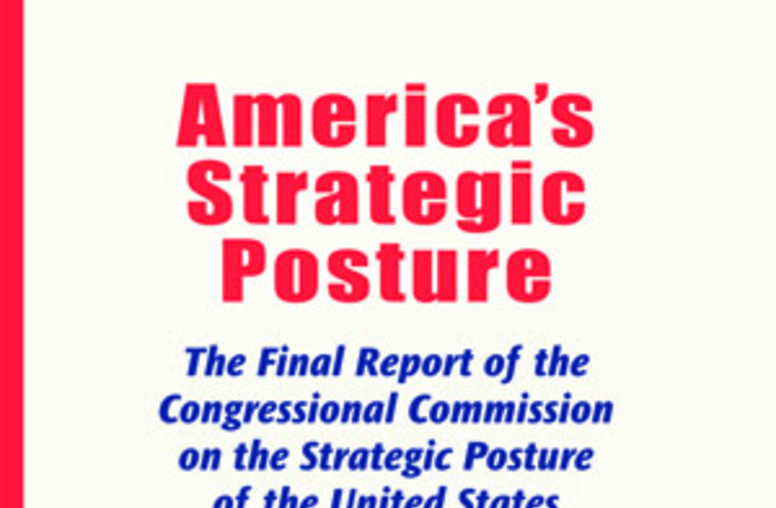
America's Strategic Posture
For more than eleven months this bipartisan commission of leading experts on national security, arms control, and nuclear technology met with Congressional leaders, military officers, high-level officials of several countries, arms control groups, and technical experts to assess the appropriate roles for nuclear weapons, nonproliferation programs, and missile defenses. This official edition contains a discussion of key questions and issues as well as the Commission’s findings and recommendati...
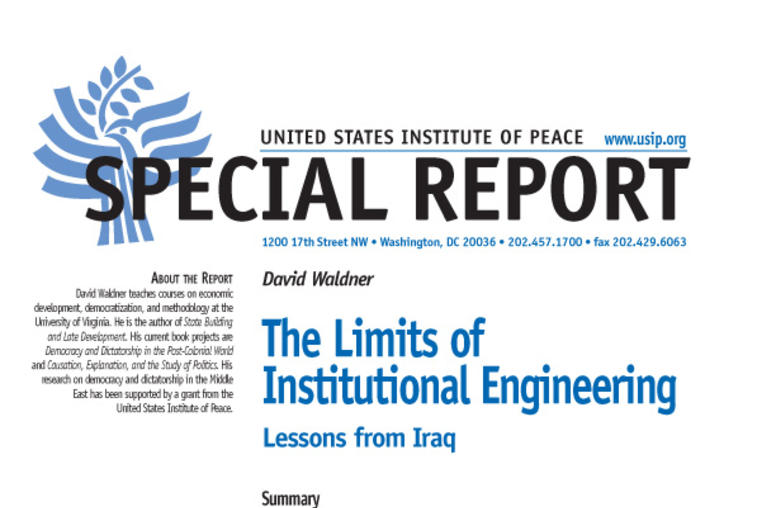
The Limits of Institutional Engineering: Lessons from Iraq
Post-conflict, post-totalitarian societies like Iraq possess many economic, political, social, and cultural characteristics that are not conducive to democratic governance. A central pillar of democracy promotion is that judicious institutional engineering--crafting new institutions and other elements outlining the democratic rules of the game--can overcome these obstacles and engender stable democracies.
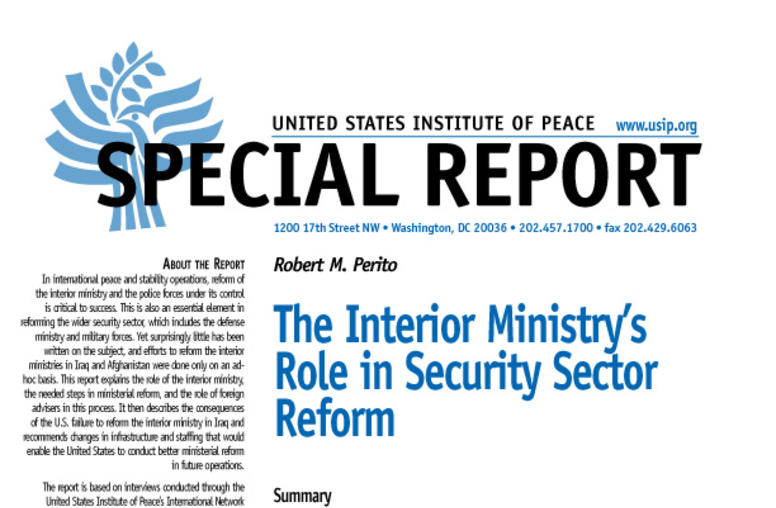
The Interior Ministry's Role in Security Sector Reform
Efforts to create an effective interior ministry and a professional and community oriented police force cannot succeed unless they are part of an overall effort for security sector reform. SSR, a relatively new concept, refers to the highly political and complex task of transforming the institutions and organizations responsible for dealing with security threats to the state and its citizens.
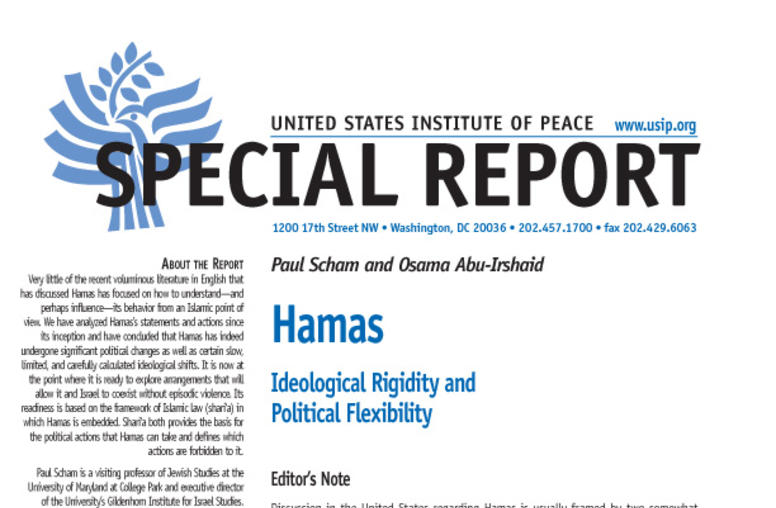
Hamas: Ideological Rigidity and Political Flexibility
Hamas's landslide victory in the Palestinian parliamentary elections of January 2006 came as an unwelcome and unexpected shock to both Middle Eastern and international regimes, with the organization winning nearly 58 percent of the Palestinian Legislative Council seats. The United States, a number of European nations, and Israel had all issued clear warnings before the elections that they would not deal with a Palestinian Authority led by Hamas.
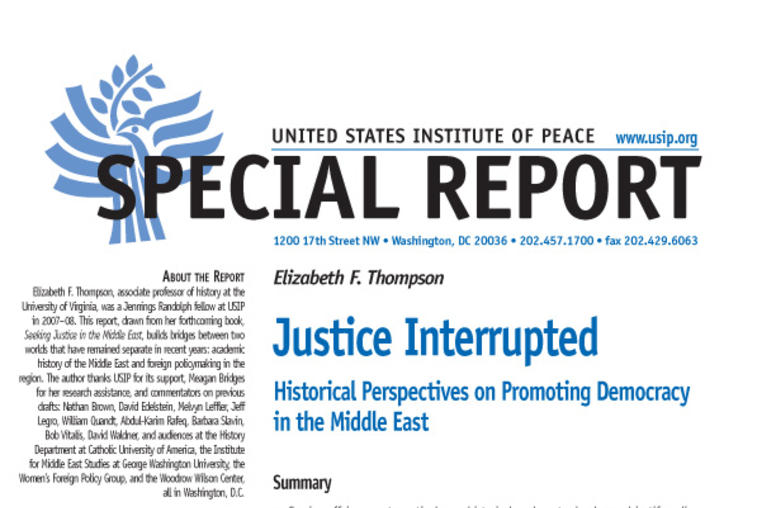
Justice Interrupted: Historical Perspectives on Promoting Democracy in the Middle East
Summary Foreign affairs experts routinely use historical analogy to develop and justify policy. However, as professional historians have long noted, attractive analogies often lead to bad policies. Officials regularly choose analogies that neglect or distort the historical case they aim to illuminate. Nonetheless, history can be used effectively in international relations To do so, practitioners must first recognize the difference between historical analogy and precedent. Historical p...
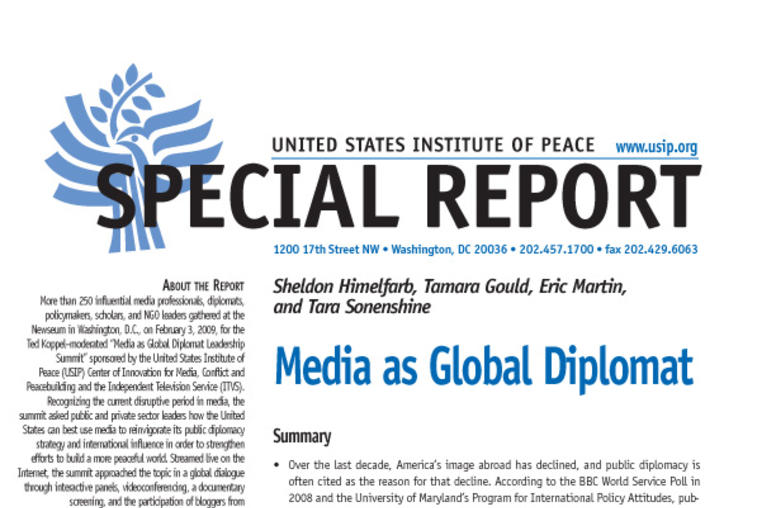
Media as Global Diplomat
It would be tempting to pronounce American public diplomacy dead in the 21st century. Where government once served as a powerful middleman for information and access, shaping prevailing messages about the United States, now the Internet connects two billion people directly. The result is a brave new world for multilateral international communication, with unprecedented power to connect and divide, spread truth and rumor, and organize dispersed individuals for good, evil, and everything in be...

Conflict, Identity, and Reform in the Muslim World
Conflict, Identity, and Reform in the Muslim World highlights the challenges that escalating identity conflicts within Muslim-majority states pose for both the Muslim world and for the West, an issue that has received scant attention in policy and academic circles.
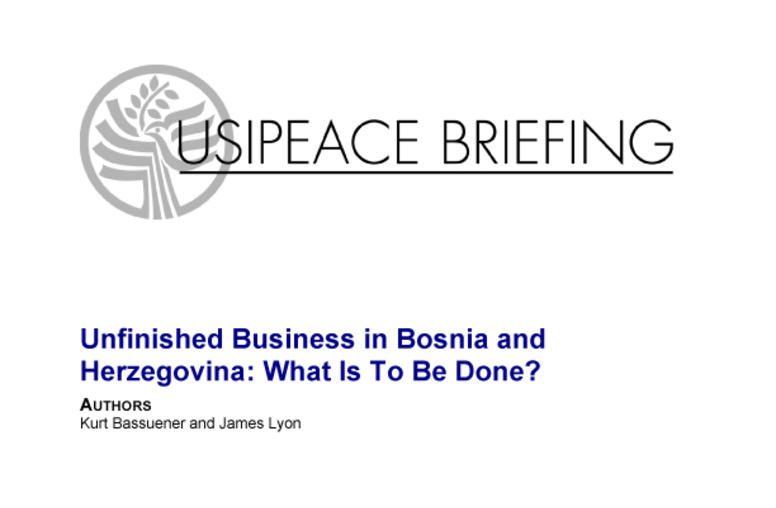
Unfinished Business in Bosnia and Herzegovina: What Is To Be Done?
This is the first of three papers USIP will publish this month on Bosnia, each with a different analytical perspective on what is happening in Bosnia and what needs to be done there to prevent a return to violence. We do this in the hope that these papers will generate a fuller debate on options that might be pursued by the U.S. government (USG), Europe and Bosnians.
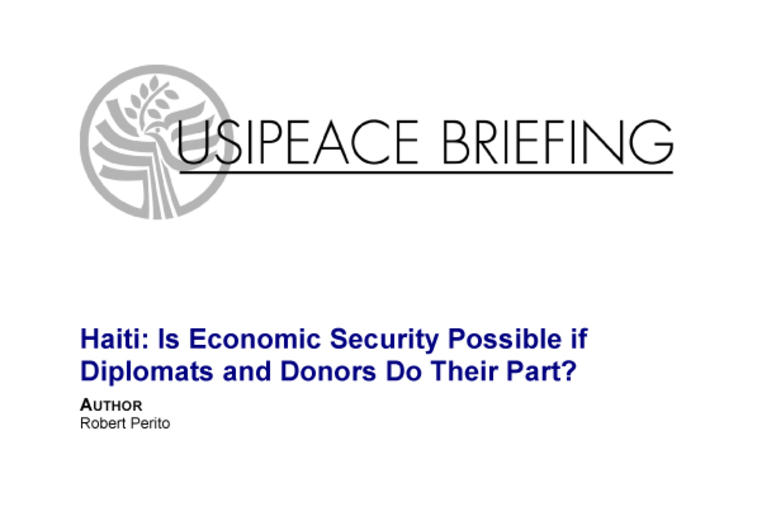
Haiti: Is Economic Security Possible if Diplomats and Donors Do Their Part?
In 2009, Haiti has been the subject of an unprecedented diplomatic initiative led by the United Nations. In rapid succession, Haiti received visits from the UN Secretary General Ban Ki-moon, the UN Security Council, former President Bill Clinton and Secretary of State Hillary Clinton and numerous senior delegations from Caribbean and South American countries
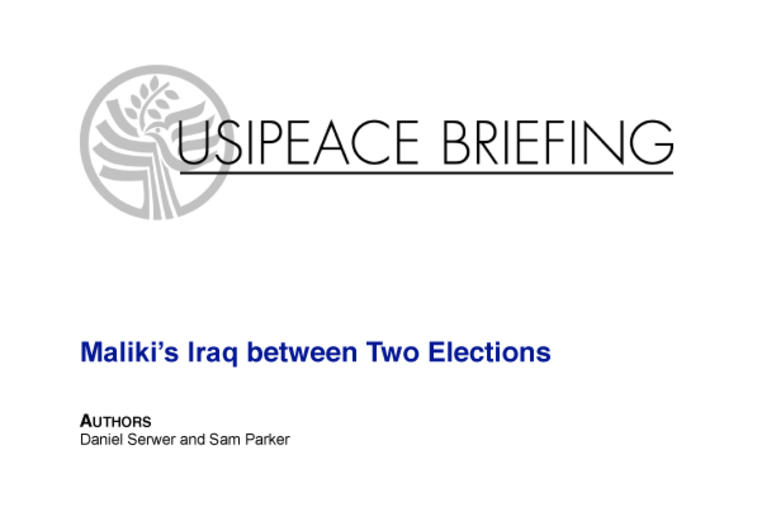
Maliki's Iraq between Two Elections
In meetings conducted in Baghdad in May 2009, senior Iraqi leaders indicated how they interpret January’s provincial election results, expressed concerns about the recent downturn in security, lamented the tremendous financial pressure the government is feeling due to the decline in oil prices, and projected their hopes for national elections slated for 30 January 2010.